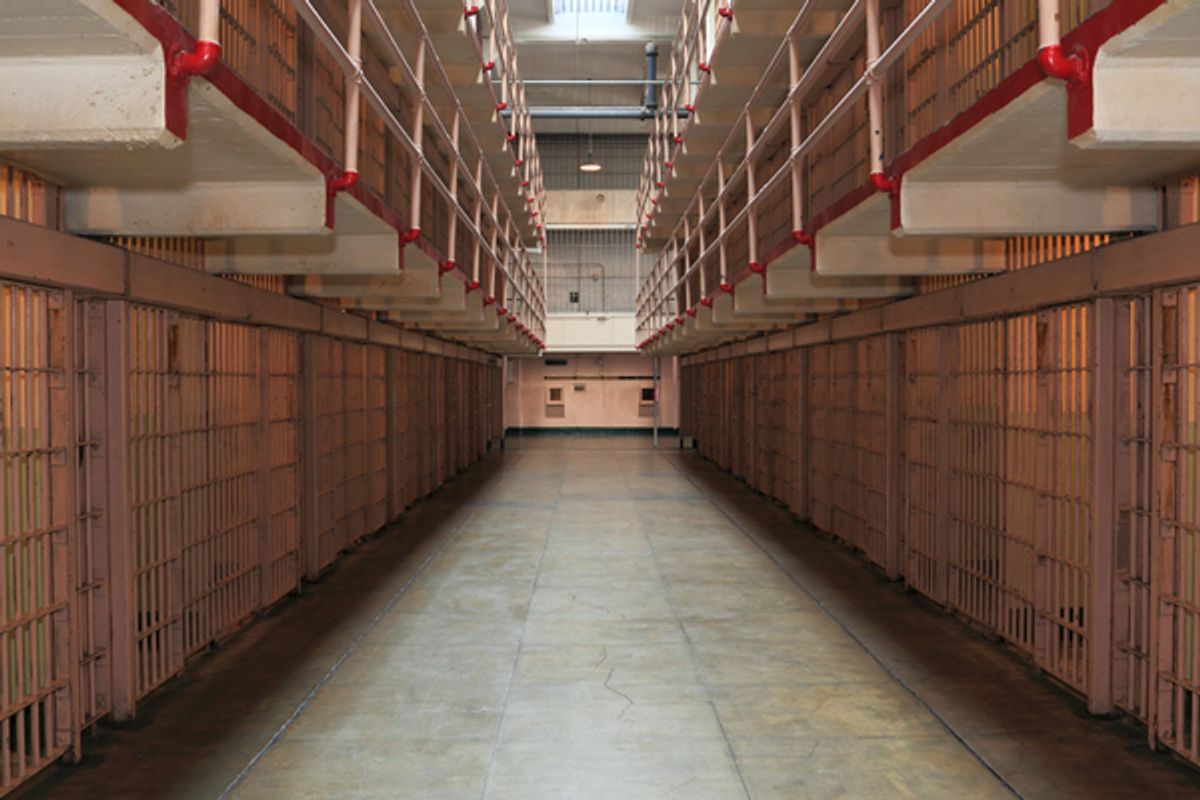The nation’s second-largest private prison corporation is holding New Mexico politicians hostage by threatening to close unless the state or federal authorities find 300 more prisoners to be warehoused there, according to local news reports.
“The company that has operated a private prison in Estancia for nearly three decades has announced it will close the Torrance County Detention Facility and lay off more than 200 employees unless it can find 300 state or federal inmates to fill empty beds within the next 60 days,” the Santa Fe New Mexican newspaper reported last week.
The paper said that county officials issued a statement citing the threatened closure and emphasized that every virtually every politician in the region, from county officials to state officials to congressmen, were scurrying to save jobs—as opposed to shutting a privatized prison by an operator that has been sued many times for sexual harassment, sexual assault, deaths, use of force, physical assaults, medical care, injuries and civil rights violations.
“This is a big issue for us,” Torrance County manager Belinda Garland told the Santa Fe newspaper.
It quoted Jonathan Burns, a spokesman for CoreCivic — formerly known as Corrections Corporation of America — as saying, while, “The city of Estancia and the surrounding community have been a great partner to CoreCivic for the last 27 years . . . a declining detainee population in general has forced us to make difficult decisions in order to maximize utilization of our resources.”
This is a perfect snapshot of what’s upside-down with privatization: the lack of economic opportunities and politicians who genuflect at providing jobs, regardless of the larger social implications, pushing law enforcement into the dirty business of ramping up arrests and convictions so private firms and shareholders can make more money.
The statement by county officials said that most of the 700-bed facility’s prisoners were federal inmates. Company officials in local meetings said federal sentencing reforms has led to a shrinking prisoner population.
The paper reported, “‘The company told the county it has been holding fewer federal detainees for Immigration and Customs Enforcement, Garland said. ‘We’re reaching out to anybody that can help us… We hate to see this facility close.’”
CoreCivic’s 2016 corporate annual report said its revenues had fallen slightly in the final years of the Obama administration.
“State revenues from contracts at correctional, detention, and residential reentry facilities that we operate constituted 38%, 40%, and 46% of our total revenue during 2016, 2015, and 2014, respectively, and decreased 2.0% from $725.1 million during 2015 to $710.4 million during 2016,” it reported. “We own approximately 58% of all privately owned prison beds in the United States, manage nearly 41% of all privately managed prison beds in the United States, and are currently the second largest private owner and provider of community corrections services in the nation.”
The elected officials who have been asked to find more prisoners include New Mexico Democrats, U.S. Sen. Tom Udall and Rep. Michelle Lujan-Grisham. The county said the town of Estancia would annually lose $700,000 in commerce and the county would lose $300,000 in tax revenues if the prison closed in late September, the New Mexican reported.




Shares